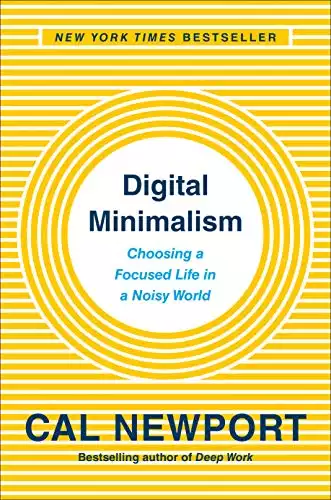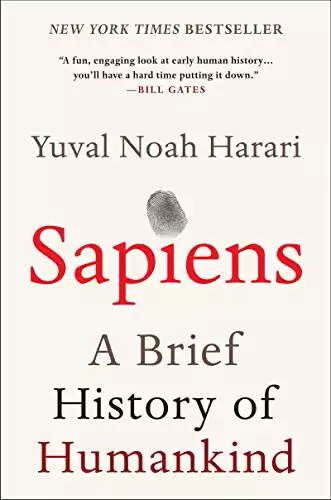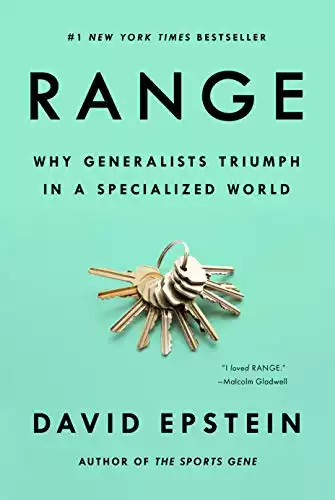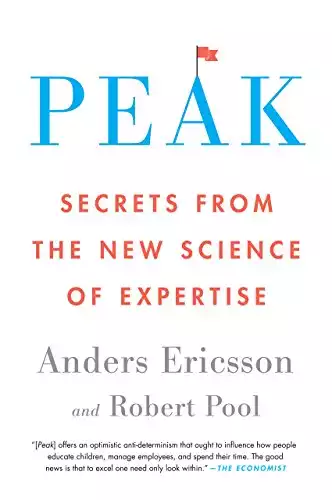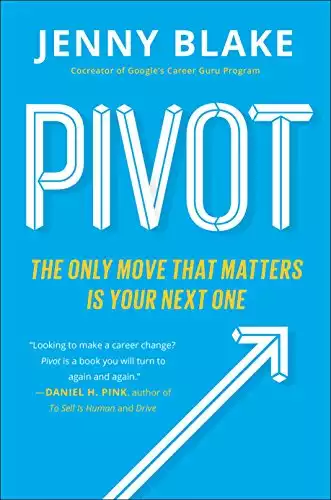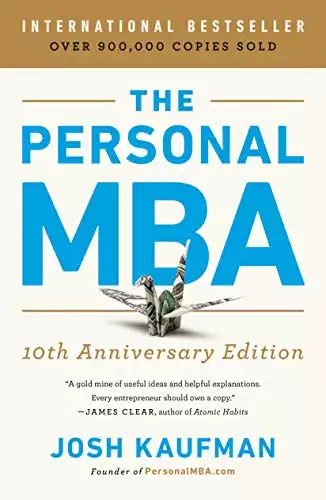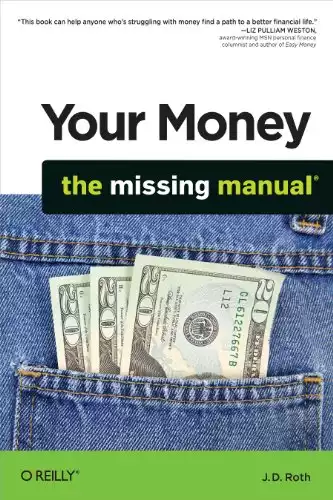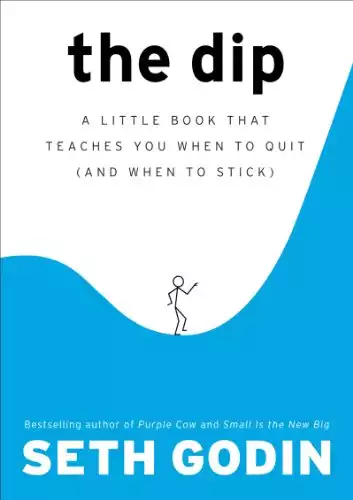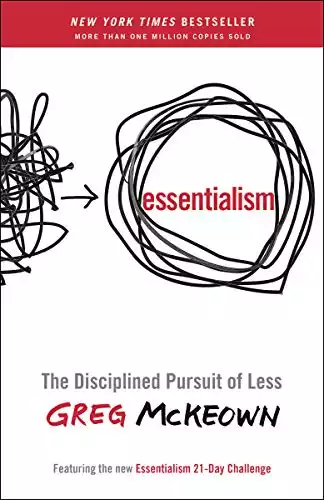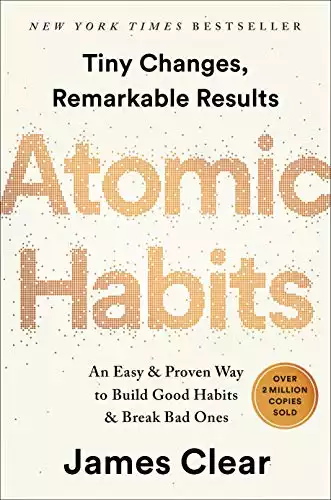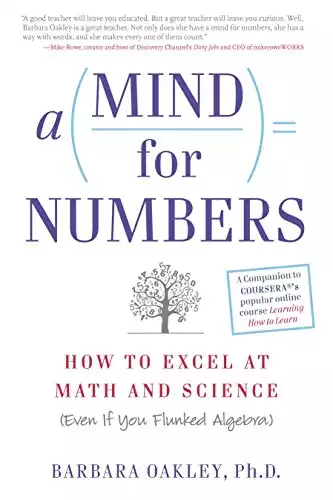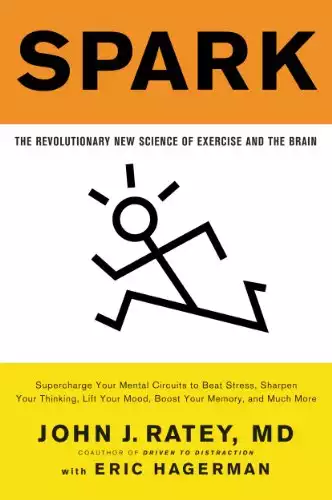As with many goals, we often get too ambitious when trying to read more.
It starts with a pledge to read one book per week, 50 pages per day, or some other lofty goal.
And then, after a few weeks, life gets in the way. Maybe it’s an unexpected late night at the office. Or a friend inviting you to an after-work happy hour. Or even an essay you forgot to write for your art history class.
Before you know it, you’re woefully behind on your reading goal. So you give up and go back to binging Netflix.
As an alternative, I propose a more realistic reading goal: one book per month. A month is more than enough time to finish a book, provided the volume in question isn’t too long or dense. But what should you read?
More than anything, you should read what interests you. However, that advice can be too vague, particularly if you haven’t read a book in a while. To help you out, I’ve put together a list of twelve great books to read in 2023.
The books on this list cover a range of practical topics, from how to change careers to how to manage your money.
Even if you don’t read all twelve in 2023, spending time with just a few of these books can help you live a better life (and, hopefully, remind you just how exciting reading can be).
So, in no particular order, here are the books we recommend:
Digital Minimalism by Cal Newport
Do you find yourself feeling overwhelmed in today’s digital world? Between the constant stream of texts, Slack messages, emails, and Zoom meetings, it’s easy to feel like your mind will never be at peace again.
Cal Newport’s book addresses these feelings while offering an alternative: digital minimalism. Far from being anti-tech, Newport encourages you to be deliberate about the digital technologies you include in your life.
Through a process called the “Digital Declutter,” Digital Minimalism will help you evaluate which technologies are worth keeping in your life. If a tech doesn’t make the cut, then Newport will show you how to discard it gracefully. In this way, the book is both inspiring and practical.
If you find the increasingly digital world difficult to cope with, this is the book you’ve been looking for.
Sapiens by Noah Harari
While human history is but a blip in the timeline of the universe, it can still be hard to wrap our monkey brains around. To help you make better sense of how we went from crafting stone tools to walking on the Moon, read Sapiens.
As the book’s subtitle states, Harari attempts nothing less than “a brief history of humankind.” It may sound like dry stuff, but it’s one of the most fascinating books I’ve ever read.
Harari starts with an exploration of the cognitive revolution that allowed humans to rise above other animals. From there, he looks at the agricultural revolution that gave rise to human civilization.
Next, Sapiens tackles the various forces, from religion to money, that helped unify humans beyond the boundaries of tribe and blood. And finally, the book explores the scientific revolution that gave birth to the modern world.
While no book can tell the entire story of humankind, Sapiens is an excellent starting point.
Range by David Epstein
More and more, our culture tells us that specialization is the key to success. And because of how long it can take to become a specialist, we’re told that it’s best to specialize early.
Range challenges these, as well as many other, prevailing cultural ideas. Among other things, Epstein argues that you’ll be best equipped to succeed if you have both a deep specialty in one field and a broad range of more general knowledge.
And when it comes to encouraging people to specialize early, Epstein suggests treating careers more like dating. Just as it isn’t a great idea to marry your high school sweetheart, so is it unwise to pick the first career that interests you. Instead, you should sample a variety of careers before choosing one.
If you’re skeptical of the saying, “Jack of all trades, master of none,” this is the book you’ve been searching for.
Want to learn more about Range? Here’s a summary of the book’s key ideas.
Peak by Anders Ericsson and Robert Pool
When we see someone doing extraordinary things, it’s natural to attribute their ability to innate talent. “They have a gift,” people will say. “I could never do that.”
Peak seeks to shatter these illusions. Ericsson and Pool argue that expert performance comes from hours and hours of deliberate practice…not natural talent.
That may sound disheartening, but it’s actually great news! It means that, in theory, expert performance is within your reach. That doesn’t mean it will be easy, but it is doable when you apply the principles of deliberate practice.
Drawing upon Ericsson’s years of research on expert performers, Peak explains a systematic approach to reaching mastery. Even if you aren’t seeking to become an expert, the methods in this book will help you practice and learn more effectively.
If you’re struggling to make progress in a field that interests you, or if you’re worried that you lack “talent,” Peak is the book to read.
Pivot by Jenny Blake
Once you’re a few years into your career, you may realize that you want to make a change. Coming to this realization is an important first step, but what are you supposed to do next?
Reading Jenny Blake’s Pivot would be an excellent next step. The book shows you how to navigate everything from a change in role at your current employer to a completely new career. Throughout, Blake draws on her experience as a career development program manager at Google, as well as stories of real people who made bold career moves.
For a taste of the great advice this book delivers, consider the concept of the “pilot test.” Instead of just quitting your job and then figuring things out, Blake encourages you to “pilot test” different career options.
Find a way you can invest a small amount of money, time, or resources into a potential career path. This way, you can sample different interests without giving up the safety net of your current job.
If you feel the desire to make a change in your career but aren’t sure where to start, give Pivot a read.
For more advice on changing careers, read these tips from a career coach.
The Personal MBA by Josh Kaufman
Just because you didn’t go to business school, doesn’t mean you can’t learn the fundamentals of business. That’s Josh Kaufman’s premise for The Personal MBA. Through this book, Kaufman concisely summarizes every aspect of how a business works.
You’ll learn all the different roles that exist within a business, how businesses create value, and much more. Even if you think you know how your company works inside and out, you’re bound to learn something new.
And unlike a lot of business books, The Personal MBA won’t sit on your shelf gathering dust. The book is written to be a handy reference or refresher for business topics. You’ll find yourself referring to it for years to come.
Even if you don’t plan to start a business or climb the corporate ladder, you’ll be a more effective employee if you understand how your role fits into the larger workings of your company. You might even discover a new career path…
Your Money: The Missing Manual by J.D. Roth
Personal finance is such a crowded space that it can be difficult to recommend a book for beginners. If you’re only going to read one book on the subject, however, then you can’t go wrong with Your Money: The Missing Manual by J.D. Roth.
This book covers everything you’d expect in a personal finance primer, including:
- Debt
- Credit cards
- Budgeting
- Taxes
- Saving and investing
Learning the fundamentals of personal finance will bring you peace and focus. Instead of worrying about how you’ll pay next month’s rent, you can focus on more exciting goals.
So if you’re looking to take control of your finances, start with Your Money: The Missing Manual.
The Dip by Seth Godin
“Quitters never win, and winners never quit” appears on classroom walls throughout the country. But as Seth Godin argues in The Dip, this is a terrible piece of advice.
Instead, you should practice “strategic quitting.” You should quit early, and often. When you do this, you avoid wasting time on goals or pursuits that aren’t going anywhere.
But how do you know when to quit, and when to keep going? The Dip shows you how to tell the difference through two concepts: The Dip and The Cul-De-Sac.
If you’re in a Dip, it means you’ve encountered an obstacle in pursuit of your ultimate goal. In this case, you need to persevere and experiment until you overcome the obstacle.
But if you’re in a Cul-De-Sac, no amount of effort will help you make progress. You’ve hit a dead end. And the sooner you quit it, the sooner you can move on.
The Dip is short enough to finish in an afternoon. But you’ll likely find yourself thinking about it for far longer.
Essentialism by Greg McKeown
Do you feel overwhelmed by all your commitments at work and in your personal life? If so, Essentialism is the antidote you need.
Throughout this book, Greg McKeown makes a powerful argument for getting your priorities straight. He shows you why focusing on a small set of important goals is the key to both professional success and personal fulfillment. And, through a series of moving anecdotes, he shows just how chaotic your life can be if you don’t prioritize.
Furthermore, Essentialism explains the importance of one simple word: “no”. If you want to prioritize, you’ll have to say no to most opportunities. And this requires the often difficult choice of trading popularity for respect.
If you find yourself overcommitting because of personal or professional FOMO, Essentialism will show you a different way.
Atomic Habits by James Clear
Habits are the invisible, unconscious force that shapes every aspect of our lives. From sleep to nutrition to work to relationships, habits are always at work.
Even if you understand their importance, however, habits can be devilishly difficult to build or change. That is until you read James Clear’s Atomic Habits. Starting with a thorough overview of the science of habits, Clear then explores how to form new habits and change existing ones.
While it’s firmly grounded in science, the book is written in a conversational style with lots of illuminating anecdotes and case studies. If you want to change your habits this year, Atomic Habits is the place to start.
A Mind for Numbers by Barbara Oakley
Think you’re just “bad at math”? Or that you “aren’t cut out for STEM”? A Mind for Numbers will show you just how wrong you are.
Drawing on her experiences as a STEM educator, researcher, and former “bad math student,” Dr. Oakley shows you how it’s never too late to learn math and science. Even if you struggled with them in school.
What I love about this book is how it blends motivation with concrete study advice. You’ll learn how to deal with test anxiety and work past ingrained beliefs about your STEM ability. But you’ll also learn how to get the most out of your study time and beat procrastination.
Even if you aren’t interested in improving your STEM skills, much of the advice in this book will help you study any subject more effectively.
Spark: The Revolutionary New Science of Exercise and the Brain by John J. Ratey
We often think of exercise as something for the body. While exercise does benefit your body in myriad ways, it’s also essential for your mental health.
You probably have some inkling of this idea, even if it’s just the vague notion that exercise helps relieve stress. But if you’re interested in learning more about exactly how exercise improves mental performance and health, Spark is the book for you.
While the science is fascinating, we found the biggest benefit of Spark to be this: no more excuses.
It’s easy to justify skipping exercise so you can spend an extra hour or two working. But as you’ll discover when you read Spark, this tradeoff isn’t worth it.
Skipping exercise may enable you to spend more hours working, but the lack of exercise means each of those hours will be less effective.
Whether you’re looking to expand your knowledge of neuroscience, or just a compelling reason never to skip a workout, Spark is a book worth your time.
Go Read a Book
I hope this article has given you some reading inspiration for 2023. As always, this list is just a starting point. Read whatever you find interesting, no matter the topic or genre.
Happy reading!
Image Credits: bookshelf



